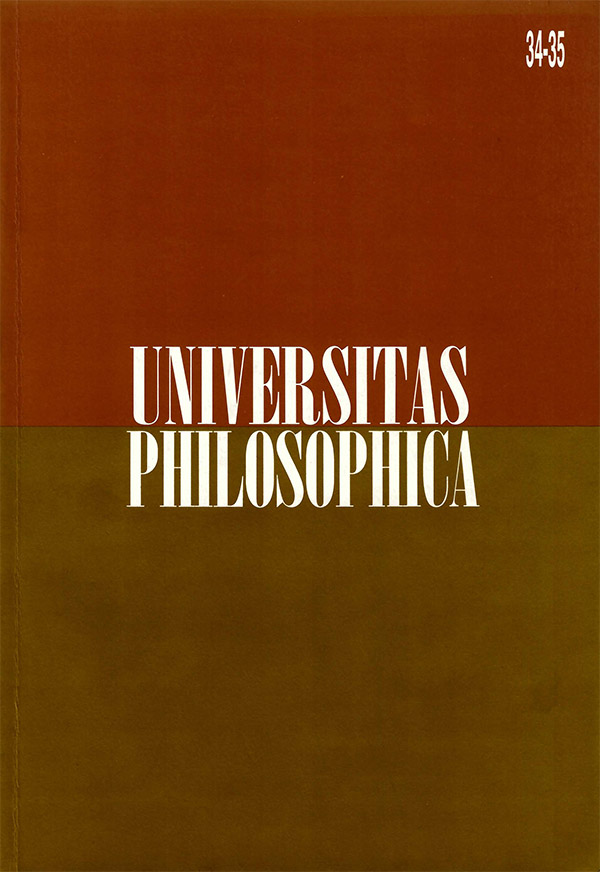Abstract
A large number of the sentences in Thus Spake Zarathustra, specially those in the first and second part of the work, are about the body or arise from it. This is due mostly to the intensity with which Nietzsche lived the experience of the illness that lasted all his life, because this philosopher found a privileged experimentation ground in illness. In this paper, the author intends to develop some relevant issues on the corporal that appear in the aboye indicated places of the Zarathustra. Also, it intends to show the connection between thought and the creative powers of the human physiological dimension and how this connection is found in the genesis of philosophy. This will be developed in four stages: the exhausted body, the body and it's forces, the relation of the body to that that for Nietzsche characterizes life in general, the will to power as a game of forces, and in the last stage: the relationship between body and philosophy.
This journal is registered under a Creative Commons Attribution 4.0 International Public License. Thus, this work may be reproduced, distributed, and publicly shared in digital format, as long as the names of the authors and Pontificia Universidad Javeriana are acknowledged. Others are allowed to quote, adapt, transform, auto-archive, republish, and create based on this material, for any purpose (even commercial ones), provided the authorship is duly acknowledged, a link to the original work is provided, and it is specified if changes have been made. Pontificia Universidad Javeriana does not hold the rights of published works and the authors are solely responsible for the contents of their works; they keep the moral, intellectual, privacy, and publicity rights.
Approving the intervention of the work (review, copy-editing, translation, layout) and the following outreach, are granted through an use license and not through an assignment of rights. This means the journal and Pontificia Universidad Javeriana cannot be held responsible for any ethical malpractice by the authors. As a consequence of the protection granted by the use license, the journal is not required to publish recantations or modify information already published, unless the errata stems from the editorial management process. Publishing contents in this journal does not generate royalties for contributors.


